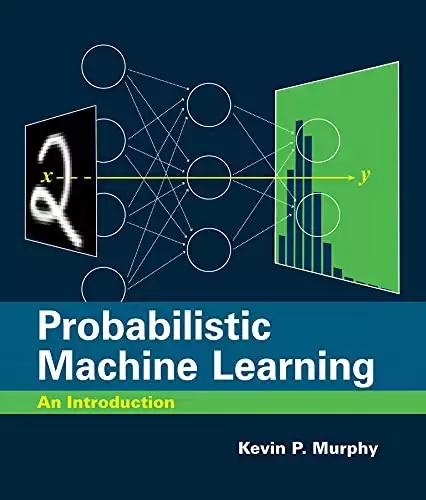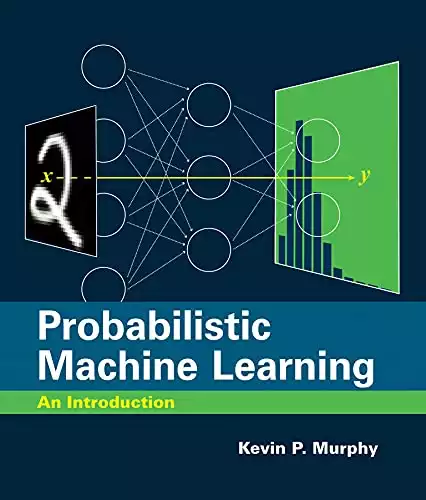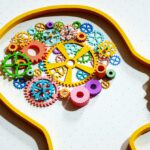Introduction
Artificial intelligence is the next high-paying skill. That is if you know how to program and are willing to learn. It is also high-paying if you have the necessary analytical skills and soft skills. AI is a constantly evolving field with many job opportunities. While only a tiny percentage of the population has the technical skills necessary, many corporations want their engineers to be able to program AI systems. And, in turn, earn lucrative salaries in the market.
As a programmer, you will be in demand. However, your programming skills must work with AI tools on the market to be helpful. For this case, consider the current state of AI. Also, consider the future of AI. Once you see the pattern, you can adjust your technical skills accordingly.
As artificial intelligence continues to disrupt our jobs and workforce, it’s important for everyone to consider learning about AI and its impact on the future of work. Understanding what AI is and what skills are important to learn about AI will help everyone to contribute towards the positive impact of AI in the future of work. This will also help us build guidelines and frameworks in which AI should operate.
But what exactly is AI? AI is an art of programming. It consists of many algorithms and software programs. When AI talks about a computer, it refers to a device or program that can learn and think. And also behave intelligently like human interaction. Today, AI is the future of jobs. If you are willing to learn what others do not know and apply it to your work, you will succeed in the job market. Also, you will manage to support yourself with Hot Skills in the labor market.
Table of contents
Also Read: Robotics For Teens – Starter Guide
AI and the Future of Work
Ask yourself this. What Job skills will be relevant in 10 years? The chances are that artificial intelligence is on top of the list. AI is what will define our future as consumers, citizens and workers. The question is how we can use AI to integrate economic impact positively. To stay ahead in the job market, you need knowledge and skills with AI technologies. While many jobs have received the benefits of automation, AI is poised to better more jobs in the future. Today’s economy rewards those who include active learning by using new technologies. And AI technologies have a bright future until 2040 and beyond.
In today’s workforce, advances in automation and AI will change the economy. Many job skills would require advancements to be effective. For example, if you are a programmer, you may want to consider your options for the coming years. You could reprogram computers with software applications. Or you may wish to design artificial intelligence systems and apps from scratch. Whatever your choice of career path, there will be new opportunities in AI.
You can also find jobs in robotics and automation. Robots are intelligent machines that are today’s future in the job market. Soon, advanced skills in Tech will program robots to do tedious work. The type of work that humans cannot do. For instance, a robot could clean your house while you nap and rest. Or, it could prepare a meal while you handle other tasks like online learning.
Also Watch: Will a robot take my job? | The Age of A.I. | S1 | E6.
The Jobs of the Future
AI is already disrupting the workforce today. For instance, many automated jobs are no longer necessary. This includes repetitive tasks like processing invoices that require the usual people skills. The reason is that software developers are implementing AI faster than ever before. Thanks to machine learning, computers can learn over time without being taught by human brains. It is a compelling feature for improving AI systems in the future that operate with artificial intelligence.
Also, AI systems can learn the process fairly quickly. This makes it possible to increase the number of repetitions. And still, perform tasks accurately. For example, AI is making progress in farming and agriculture. The software can accurately learn how to identify crops from photos and weather conditions. And through this, it can also design management strategies for farmers. Today this technique is being used in agriculture for better yields and productivity. But in the future, people will use it in other industries that require better outputs.
In another example, AI is revolutionizing stock trading. Today, many investors use automated trading programs with AI to manage portfolios. And also increase profits. Many hedge funds and investment firms also use this software to leverage data to make better decisions. But as AI develops more and more, these investments will likely move into automated wealth management. The future has already arrived today in the stock market.
AI is also positively causing the impact of automation. In the future, we are more likely to see more self driving cars. We could also see delivery robots for the food industry. However, self driving cars are just one branch that will transform the transport industry.
The positive impact of automation will also extend to healthcare. With AI, medical treatment will become more accurate and personalized. For instance, we could see AI systems that can diagnose cancer faster. And more accurately than human doctors. Through this technology, people will be able to access treatments more efficiently. Therefore, the impact of automation is something individuals should expect.
Also Watch: How Robots Are Taking Our Jobs!
Top Artificial Intelligence Skills
If you are interested in an AI job, there are skills gaps you should identify and learn. These technical skills can help prepare you for the future. There will be many jobs in this area. You can choose a specialization or generality that best suits your interests and goals. Many jobs require knowledge of one skill from this list.
- Programming languages.
- Data science.
- Machine Learning.
- High-level math like statistics
- Natural language processing (NLP)
- Computer science skills and knowledge like software engineering, etc
The Top Jobs In AI
AI is already dominating the job market. Many companies are already using AI in their businesses to improve production, efficiency, and profits. Here are the top jobs in AI:
1. Machine Learning Engineer
Machine learning engineers are in high demand in the job market. If you are looking for a job that pays well, this may be your job of choice. With this skill, you can design and analyze algorithms that become smarter over time. And this is especially important in AI since computers often require human assistance. For example, a computer can learn how to decode speech and text over time. This is a primary benefit of machine learning algorithms in AI software applications.
Average Salary: above $150,000 a year
Requirements: Hiring firms require an advanced college degree. It would help if you had a bachelor’s in computer science, statistics, or related fields. Human skills like communication skills are also valuable in this occupation.
2. Robotic Scientist
Robots are everywhere in the world. For instance, in Silicon Valley, robots are making the world more automated. But they are also used in other industries like manufacturing, food production, farming, etc. Robots are used to perform tasks that would be difficult with human labor and equipment. As a result, business analysts are making high-level decisions on how to best use these machines.
Average Salary: $150,000 a year
Requirements: Companies typically require advanced degrees in computer science. Some employers also prefer related experience with programming robots.
3. Data Scientist
AI is a growing industry that has many lucrative opportunities for economic growth. In particular, companies need data scientists to analyze massive amounts of data. And to develop meaningful insights. This is particularly important in the future. These jobs aim to build AI systems that understand and learn faster than ever. In other words, they take advantage of AI to design more efficient systems in the future.
Average Salary: $135,000 a year
Requirements: You need a university degree in mathematics, computer science, or a related field. You also require workplace skills like business acumen.
4. Research Scientist
These scientists are responsible for discovering new things about the world. Often, the work of a scientist is to learn how to predict outcomes based on certain conditions. This may include genetics and biology, chemistry and physics, etc. Lifelong learning is required in this occupation since the field is constantly evolving. Individuals would also need deep learning to stay current with new developments.
Average Salary: around $100,000 a year
Requirements: You need advanced degrees in science, engineering, or chemistry. Some employers require specific research experience for better job prospects. Others would also require workplace skills like communication and teamwork.
5. Business Intelligence Developer
These developers are highly specialized in statistics and data mining. They make use of big data sets to analyze business metrics. This includes managing the dynamics of a company’s finances, human relations, and products. As a result, when there are business challenges, they make good decisions on how to solve them. In the end, companies manage to overcome these business challenges.
Average Salary: around $120,000 a year
Requirements: You need a college degree in computer science or business management. You also require workplace skills like communication and collaboration.
The above job descriptions are good examples of exciting careers in AI. The levels of education for these careers reflect how high demand for AI skills. Through social interaction, top AI jobs can improve and evolve. Individuals can obtain a good trend line scenario to develop a clearer future picture. Therefore, if you have access to education, you can prepare for the future. Solid access to education will also allow you to adapt to new trends.
Also Read: Top 10 AI books for beginners
Conclusion: Why AI is the next high paying skill.
AI is a disruptive skill. A disruptive skill is a skill with the potential to disrupt a current industry. A Disruptive skill is so promising at becoming a marketable skill that it generates investment. When a disruptive skill becomes a significant part of the market, it helps in driving growth.
AI has managed to be a disruptive skill due to one significant reason. Its advancement has given rise to automation potential.
The automation potential will increase productivity and ROI for businesses. It will also help in reducing costs for the organizations. The advancement also helps reduce errors, thus improving the quality of the final product.
According to survey respondents in a survey(General attitudes toward AI), AI is the most significant skill to acquire. The survey respondents say this because individuals expect the demand for AI professionals to increase. For this case, it would be best to have skills in AI to be part of AI gaining ground.












